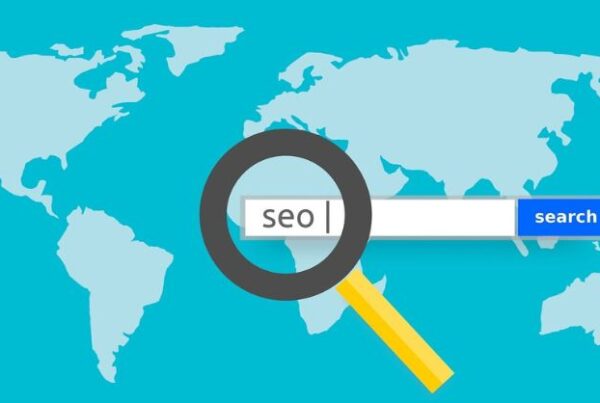
The first step toward improved rankings is to know where your pages stand right now. A website SEO audit will help determine how visible your site is for keywords and identify issues that could be impacting its page ranking.
In addition, an effective website audit will identify the strengths and weaknesses of a website’s current SEO strategy. This lets one expand on the things that are working well and fix the things that are not.
Keep reading for our quick guide to SEO Audits and how they can help increase the amount of traffic coming to your website.
What Is a Website Audit?
A website audit is a complete assessment of a site, looking at several factors that impact its performance on search engines, particularly Google and Bing. At the end of the process, a website audit report is created. This report is essentially a “report card” that shows what needs to be done to rank better on Google.
Audits are often used to determine how well or how poorly a site ranks for keywords but you can also use them to help with conversion optimization and technical SEO issues. As the site’s rankings begin to improve, the traffic coming from the search engines will increase, which is an ideal opportunity to test factors like landing pages and lead generation to optimize conversions.
SEO is constantly changing, so we recommend performing SEO audits every three months or whenever significant changes are made to any aspect of a website’s design. These changes include things such as content updates, site restructuring, and new features.
Why an SEO Audit is Important
The vast majority of traffic is generated from search results, with Google handling around 40,000 searches every second.
Google uses the E.A.T principle to determine which sites to show in search results. As a result, SEO audits are an excellent way for website owners to find out how Google ranks their site, where it falls short, and what can be done about it.
What Is E.A.T?
To provide a higher-quality experience to its users, Google tweaked its SEO ranking algorithms a few years ago. SEO rankings are now based on the principle of E.A.T., which stands for “expertise, authority, and trustworthiness.”
Sites with high levels of all three will rank better on Google’s SERPs (search engine result pages) than those that rank high on only one or two principles. This is because the three tenets of E.A.T. focus on SEO from a user perspective.
Why Is a Site’s Content Important for SEO?
One of the most common SEO mistakes is not having relevant content that Google can index on a website. If a site doesn’t have quality content indexed by search engines, it will be invisible on page one of any search engine results pages for relevant keywords.
Poor rankings mean a site will get little or no traffic from organic searches. However, audits reduce this risk significantly – if a site doesn’t contain high-quality user-generated or third-party sourced material related to specific topics or products, SEOs will know to take them off the list of SEO targets.
How SEO Audits Help With Conversions
We know that there is a direct correlation between SEO rankings and conversion rates. In fact, SEO Audits have been proven to improve conversions by as much as 30%.
In addition to improving a website’s page ranking for keywords a business wants to focus on, SEO audits help identify ways in which users interact with the website.
How SEO Audits Work
A website audit starts with identifying target keywords and determining which pages are ranking for each keyword. This is done through a process called keyword research, which finds relevant search terms that people use when searching online, then looks at how well certain sites rank in Google Search Results for those words or phrases.
How to Conduct an SEO Audit
SEO audits are the SEO equivalent of a site’s physical being brought to life by diagnosing potential issues and offering possible solutions, therefore conducting a free website audit can provide valuable insights.
One way to conduct an SEO audit is through Google Search Console (formerly known as Webmaster Tools). The Search Console provides in-depth information on how well a website ranks for certain keywords, which pages don’t have SEO issues, which pages are getting the most traffic and conversions, etc.
We recommend reading your website analytics to figure out where people spend their time when browsing your site. In addition, this process can identify new opportunities through search terms that you currently rank high or low for.
A Website Audit Checklist should include a combination of the following:
On-Page SEO Checklist
Take an in-depth look at the website’s meta tags, titles, headers, and other elements that make up what Google sees when it crawls the site. This also covers HTML validation to ensure there are no errors on the site’s pages that could cause problems with indexing or ranking.
Off-Page SEO Analysis
This section looks at all links pointing back to a website from other online sources, such as other websites or social media accounts, commonly known as backlinks. Gathering information on the strength as well as the number of links returning traffic to a site is crucial to understanding its ranking strategy.
Technical SEO Audit
A technical SEO audit involves crawling through a site’s source code to find issues with things such as redirects, meta tags, href tags, and so on. Experts can also run a website audit tool to check for common issues.
This includes indexation issues, canonicalization errors, and duplicate content. Correcting these issues will help increase a site’s rankings.
SEO Competitor Analysis
It’s essential to understand how a website stacks up against the competition when it comes to SEO. You can then identify areas where the site needs improvement or changes to stay competitive for future rankings.
After completing an SEO audit, you will have a better idea of where problems are with the site’s current strategy (or lack thereof). Use this information to define an SEO strategy moving forward.
Lock-In Your SEO Strategy
A website audit is a critical step in a successful SEO strategy. Following the steps we’ve outlined in this article will put your website on the path to higher rankings and more traffic. While this process isn’t complicated, it can be time-consuming. And staying current on the latest changes with Google and other search engines also takes time.
If you’d rather focus on what your business does best and leave the SEO work to experts, VujaDay can help. Our team of SEO professionals will help your business get found online. Get in touch with us today to find out how we can help you grow your business online.



